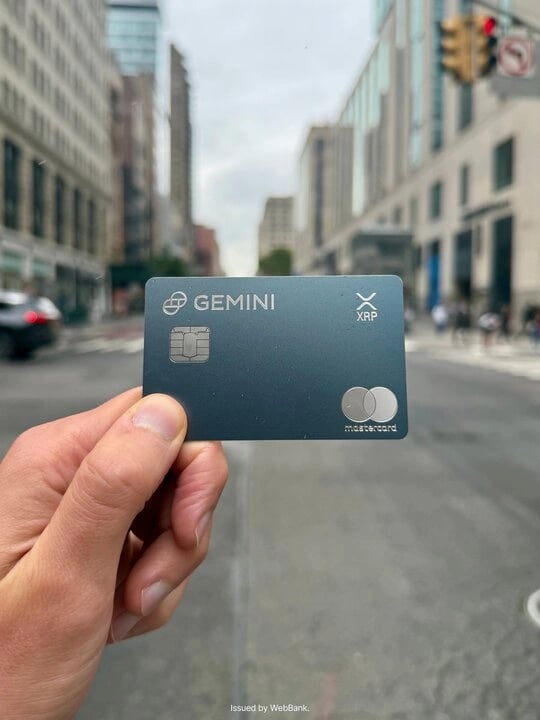위키 구독하기
Share wiki
Bookmark
Gemini
0%
Gemini
**제미니(Gemini)**는 고객이 디지털 자산을 구매, 판매 및 보관할 수 있도록 하는 디지털 통화 거래소 및 수탁 기관입니다. 제미니는 뉴욕 주 금융 서비스부(NYDFS)의 규제를 받는 뉴욕 신탁 회사입니다. 캐머런과 타일러 윙클보스가 2014년에 설립했습니다. [19]
개요
CNBC 보고서에 따르면 2016년 6월 제미니는 세계 최초의 라이선스를 받은 이더 거래소가 되었습니다. 2018년 5월에는 제미니가 세계 최초의 라이선스를 받은 제트캐시 거래소가 되었다고 발표했습니다. 현재 미국, 캐나다, 영국, 한국, 홍콩 및 싱가포르에서 운영되고 있습니다. 2025년에는 리히텐슈타인에 본사를 둔 방크 프리크(Bank Frick)와의 파트너십을 통해 스위스와 영국을 포함한 여러 유럽 관할 지역에서 기관 고객을 위한 서비스를 확장했습니다.[13]
주요 경쟁업체로는 코인베이스, 바이낸스, 비트스탬프 및 크라켄이 있습니다. 모든 사용자는 공개 시장에서 암호화폐와 법정 통화를 거래할 수 있습니다. 사용자는 USD를 은행 계좌로 이체하거나 은행 계좌에서 이체할 수 있습니다. 2025년 8월 제미니는 미국 증권 거래 위원회에 기업 공개(IPO)를 위한 등록 명세서를 제출했으며, 티커 심볼 "GEMI"로 나스닥에 상장할 계획입니다.[14]
제미니는 복잡한 개인 키 시스템과 암호로 보호된 환경을 통해 비트코인 구매 및 보관을 용이하게 하기 위해 시작되었습니다. 해킹으로 인한 손실 위험을 최소화하기 위해 거래소에 있는 총 비트코인의 작은 비율만 온라인으로 보관됩니다. Profit Confidential 사이트에서 손상된 거래소에 대해 지적한 바와 같습니다.[2]
솔직히 말해서 "이더리움 거래소가 안전한가"라는 질문에 대한 예 또는 아니오 답변은 없습니다. 과거 기록만 보면 폴로닉스와 같은 거래소가 해킹당했지만 안전합니다. 그렇다고 해서 폴로닉스가 다른 거래소보다 덜 안전한 것은 아닙니다. 거래소를 해킹하는 사람들은 끊임없이 방법을 업그레이드하고 있으며, 마찬가지로 거래소도 한발 앞서 나가려고 노력하고 있습니다. 거래가 완료되면 ETH를 오프라인으로 보관하는 것이 가장 좋습니다.[5]
뉴욕 타임스는 제미니가 가상 화폐를 취급하는 헤지 펀드 블록타워 캐피털의 아리 폴의 신뢰를 받고 있다고 보도했습니다. 블룸버그 뉴스*와 포춘 매거진의 보도에 따르면 제미니는 2017년 12월에 비트코인 선물 계약을 출시한 최초의 거래소였습니다. 포춘은 시카고 옵션 거래소(CBOE)가 제미니를 "비트코인 선물에 대한 일일 결제의 기준으로 사용한다"고 보도했습니다.[2]
역사
타일러와 캐머런 윙클보스는 2013년 6월에 제미니를 발표했고 회사는 2015년 10월 25일에 서비스를 시작했습니다. 제미니는 이후 FIX 및 API 지원을 포함한 금융 서비스 제공을 추가하기 시작했습니다. 2016년 5월 5일 뉴욕 주지사 앤드루 쿠오모는 제미니를 미국에 기반을 둔 최초의 라이선스를 받은 이더리움 거래소로 승인했다고 발표했습니다. 또한 2016년에 제미니는 이더리움 코드의 하드 포크에 따라 사용자가 거래소에서 이더리움 클래식(ETC)을 인출할 수 있도록 허용한다고 발표했습니다.[3][4]
2017년 10월 제미니는 등록된 사용자가 2017년 8월 비트코인 하드 포크 이전에 거래소에 사용 가능한 잔액이 있는 경우 거래소에서 비트코인 캐시를 인출할 수 있도록 허용한다고 발표했습니다.[5]
포춘은 Cboe가 2017년 12월에 비트코인 선물 계약 "XBT"를 결제하기 위해 제미니를 사용한다고 보도했습니다. Cboe는 이러한 계약에 대해 제미니의 달러 표시 경매 가격을 사용하기 위해 제미니와 제휴했습니다.[11]
블룸버그 뉴스에 따르면 제미니는 2018년 4월에 "블록 거래"를 제공하기 시작했습니다. 블록 거래를 통해 제미니 사용자는 제미니의 지속적인 주문장 외부에서 대량의 디지털 자산을 사고 팔 수 있어 더 큰 규모로 거래할 때 추가 유동성 메커니즘을 만들 수 있습니다.[15]
윙클보스 쌍둥이는 2018년의 주요 목표가 비트코인 캐시와 라이트코인을 추가하는 것이라고 말했습니다.[9]
2018년 3월 제미니는 포트폴리오와 네트워크에 여러 파트너십과 제품을 추가했습니다. 기관 및 복잡한 투자자를 위한 풀 스택 암호화폐 거래 및 위험 관리 플랫폼인 Caspian과의 파트너십을 발표했습니다.[6][7]
2018년 4월 로이터는 제미니가 거래를 모니터링하고 거래소에서 사기 행위와 가격 조작에 대처하기 위해 NASDAQ의 SMARTS 기술을 활용할 것이라고 보도했습니다.[12]
2018년 5월 14일 뉴욕 금융 서비스부는 제미니가 플랫폼에서 제트캐시(ZEC)를 제공하도록 승인했다고 발표했습니다. NYDFS는 이번 결정이 "시장에서의 혁신과 리더십에 대한 뉴욕의 오랜 약속의 연속"이라고 논평했습니다. 제미니의 CEO인 타일러 윙클보스는 동일한 보도 자료에서 제미니가 "제트캐시 거래 및 보관 서비스를 제공하는 세계 최초의 라이선스를 받은 거래소가 된 것을 자랑스럽게 생각합니다."라고 인용했습니다.[1]
2018년 9월 10일 블룸버그 뉴스는 제미니가 NYDFS로부터 새로운 제품인 제미니 달러(GUSD)에 대한 규제 승인을 받았으며 같은 날 코인 거래를 시작할 것이라고 보도했습니다. 제미니는 이 제품을 미국 달러와 1대 1 페그를 유지하는 스테이블코인으로 설명했습니다.[12]
2025년 3월 제미니는 유럽에서 서비스를 확장하여 영국, 스위스 및 기타 관할 지역의 기관 고객이 리히텐슈타인에 본사를 둔 방크 프리크와의 파트너십을 통해 전환 수수료 없이 미국 달러 입출금을 할 수 있도록 했습니다.[13]
2025년 8월 18일 회사는 미국에서 IPO를 신청하여 상장 회사가 되려는 의도를 밝혔습니다.[14]
제품 및 서비스
Nifty Gateway 인수
2019년 11월 제미니는 대체 불가능한 토큰(NFT)을 사고 파는 플랫폼인 Nifty Gateway를 인수했습니다. 이번 인수는 제미니가 성장하는 디지털 수집품 시장에 진출한 것을 의미하며 Nifty Gateway는 제미니의 보관 및 보안 인프라를 활용할 수 있게 되었습니다.
제미니 신용 카드
2025년 8월 제미니는 리플과 제휴하여 XRP 보상 버전의 신용 카드를 출시한다고 발표했습니다. WebBank에서 발행한 한정판 금속 카드를 통해 사용자는 구매 시 암호화폐 보상을 받을 수 있으며, 이 보상은 즉시 제미니 계좌에 입금됩니다. 카드 소지자는 연료 및 EV 충전에 대해 최대 4%의 XRP를, 식사에 대해 3%, 식료품에 대해 2%, 기타 모든 거래에 대해 1%를 적립할 수 있습니다. 이번 파트너십에는 제미니 플랫폼에서 리플의 스테이블코인인 RLUSD 사용을 확대하는 내용도 포함되었습니다.[16] [17]

제미니 Earn
제미니는 고객이 암호화 자산을 대여하고 이자를 얻을 수 있도록 제미니 Earn 프로그램을 시작했습니다. 이 프로그램은 고객 자산을 제3자 차용인인 Genesis Global Capital에 대여하는 것을 포함했습니다. 2022년 11월 FTX의 붕괴 이후 Genesis는 인출을 중단했고, 이로 인해 제미니는 Earn 프로그램에서 상환을 일시 중단해야 했으며, 약 340,000명의 고객에게 영향을 미쳤습니다.
제미니 지갑
2025년 8월 제미니는 자체 보관 암호화폐 지갑인 제미니 지갑을 출시했습니다. 이 지갑은 기존 시드 문구 대신 패스키 기술을 사용하여 간소화된 온보딩 프로세스로 설계되어 DeFi 공간의 초보자가 더 쉽게 접근할 수 있도록 하는 것을 목표로 했습니다. 이 지갑은 "Onchain"이라는 웹 기반 대시보드와 통합되었으며 처음에는 이더리움과 여러 레이어 2 네트워크를 지원했습니다.[18]
규제 조사 및 소송
제미니 Earn 프로그램의 실패는 상당한 법적 및 규제적 문제로 이어졌습니다. 2023년 1월 미국 증권 거래 위원회(SEC)는 Earn 프로그램을 통해 등록되지 않은 증권의 제공 및 판매에 대해 제미니와 Genesis를 모두 기소했습니다. 2023년 10월 뉴욕 법무 장관 레티티아 제임스는 제미니, Genesis 및 모회사인 Digital Currency Group(DCG)를 상대로 회사가 230,000명 이상의 투자자를 10억 달러 이상 사취했다고 주장하며 소송을 제기했습니다.
보안 사고
2022년 12월 제미니는 타사 공급업체에서 발생한 데이터 침해를 고객에게 알렸습니다. 이 사고로 인해 570만 명의 고객 이메일 주소와 부분 전화번호가 유출되었고, 나중에 다크 웹 포럼에 게시되었습니다. 제미니는 침해가 자체 시스템을 손상시키지 않아 고객 계정과 자금에는 영향을 미치지 않았다고 밝혔습니다.
제미니 재단
2023년 4월 제미니는 특정 관할 지역의 고객에게 암호화폐 파생 상품 거래를 제공하기 위해 설립된 비 미국 법인인 제미니 재단의 설립을 발표했습니다. 이 플랫폼은 BTC/GUSD 영구 계약으로 출시되었으며 남미, 아시아 및 아프리카 전역의 국가에서 고객이 사용할 수 있지만 미국, 영국 또는 유럽 연합에서는 사용할 수 없습니다.
잘못된 내용이 있나요?
